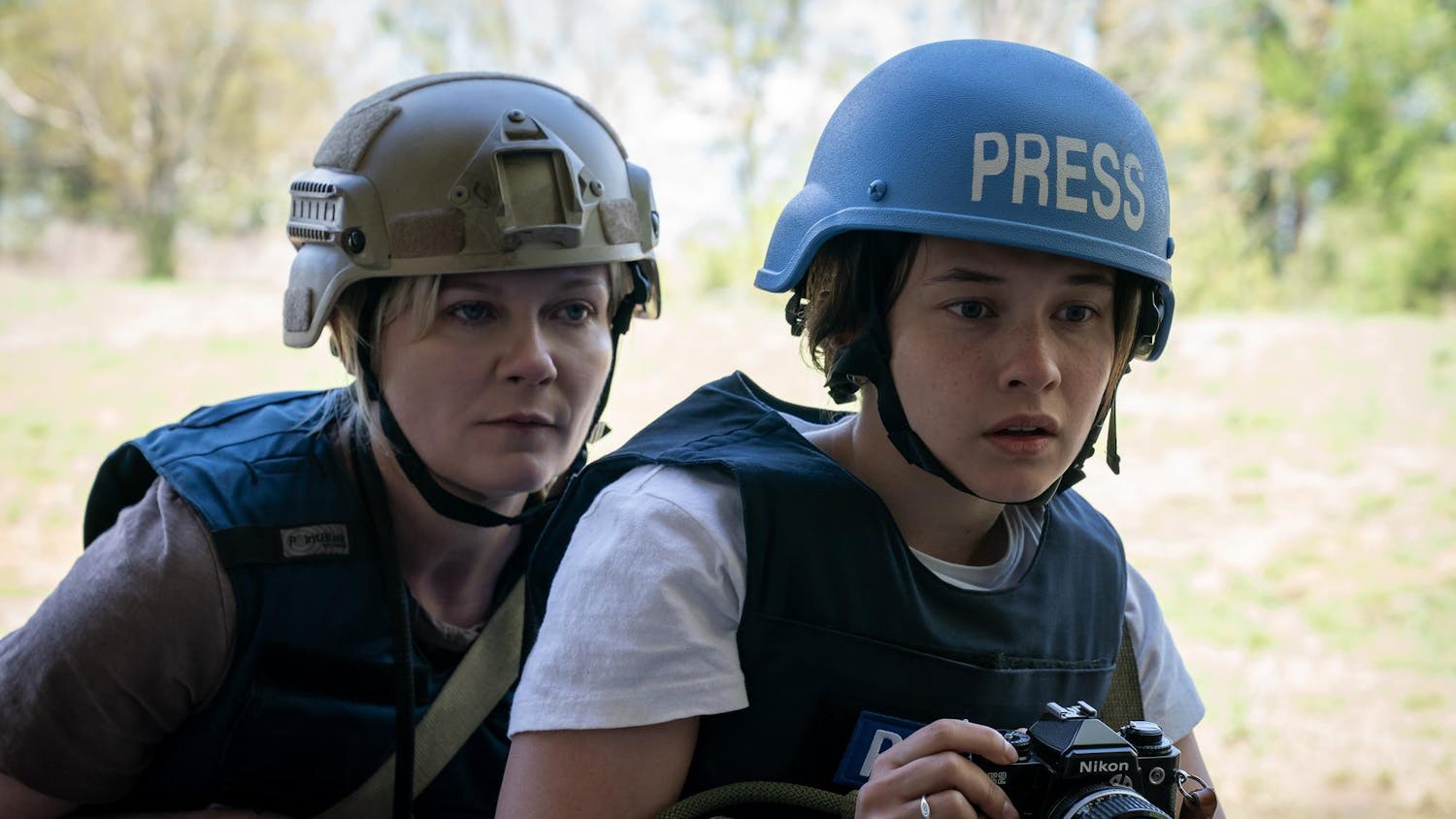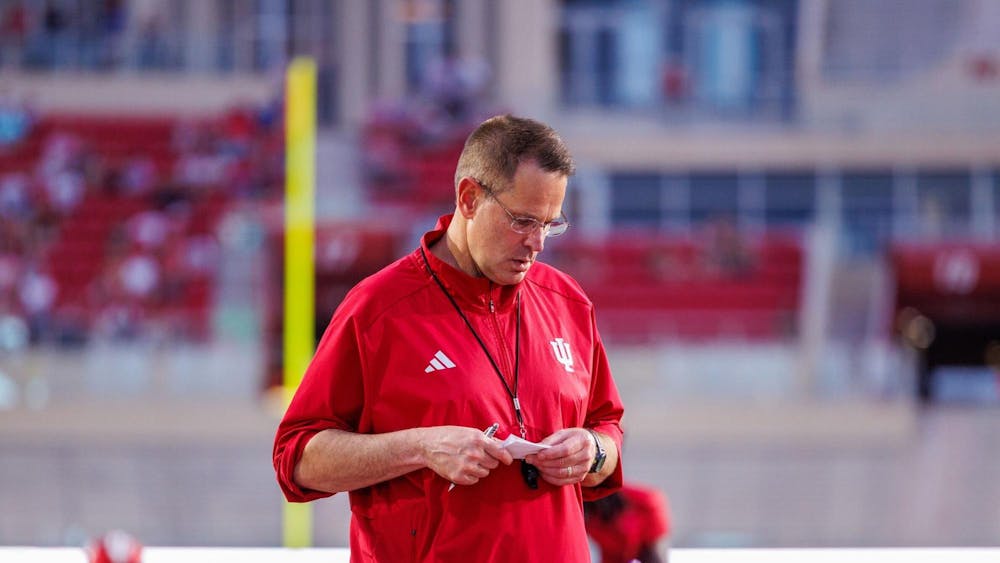With red solo cups of Turkish tea in hand, IU students and community members listened to the steady rhythm of Turkish poetry mingling with classical Ottoman music and the hum of a teapot brewing in the back.
The scene was a part of Turkish Poetry Night — a collaboration between the Turkish Flagship Program and Turkish Students Association. The event, which took place Thursday at the School of Global and International Studies, involved an evening of poetry recitation and Valentine’s Day-themed snacks.
Rebecca Mueller, program coordinator for the Turkish Flagship Program, said poetry plays an integral role in Turkish culture in a way that is nonexistent in American culture.
“It’s a well-loved, respected art form that is enjoyed by all, not just a select elite like it kind of is in America,” Mueller said.
Attendee and IU alumna Amy Jensen said poets and poetry in Turkish-speaking countries enjoy a prestige American poets don’t often have. This prestige is a result of the popularity of poetry among the masses, she said.
“It captures this power, essence and culture in a lot of countries in the Middle East,” Jensen said. “There’s a prestige and respect in the same way as people in popularized entertainment in America.”
Jensen said this prestige is also rooted in a respect for Turkish oral tradition that has carried on to include poetry recitation.
In history, Jensen said men in higher social classes were expected to have an appreciation and talent for poetry in order to be considered cultured. These expectations also contributed to the prestige of poetry among the upper class, she said.
Most of the performers chose to present poems by popular Turkish poets like Yahya Kemal Beyatli and Can Yucel, but Jensen chose to present an original poem titled “Turk musunuz,” which means “Are you Turk?”
Jensen, who studied Turkish in Istanbul, said she enjoys writing poetry just as much as she enjoys listening to it.
For Jensen, writing Turkish poetry started out as a way to practice grammatical structure. Now it has become a favorite pastime.
“Turkish poetry has so much grace and power,” Jensen said. “It’s great to write poetry using such a beautiful language.”
Jensen also said the recitation of poetry is just as much an art as the poetry. When performing a poem, the speaker must pay attention to inflections, rhythm and pacing, she said.
“You don’t just recite it,” Jensen said. “You perform it. You give it feeling, give it meaning.”
Mueller said she hoped the event was a learning experience for everyone involved so that they could walk away with a better understanding of the role of poetry in Turkish culture.
She said she also wants to encourage people to consider learning Turkish, which is considered a critical language by the United States government. By learning Turkish, Mueller said students will be in better shape to tackle the ever-changing political climate in the Middle East.
Of the performers, six were Turkish learners and two were native speakers.
Jensen said bringing learners and native speakers together adds another layer to the learning experience. She said this layer is especially important because of how difficult it has become to study abroad in Turkey due to political instability.
“We really need to rely on one another and take advantage of the resources we have to learn Turkish here,” she said.
Mueller said part of reaching professional proficiency in Turkish is to understand its culture. The best way to increase understanding of Turkish culture is to attend events that promote appreciation for it, she said.
“Language and culture go hand-in-hand,” Mueller said. “It’s never enough to just know the language. You have to immerse yourself and truly appreciate the rich culture.”






